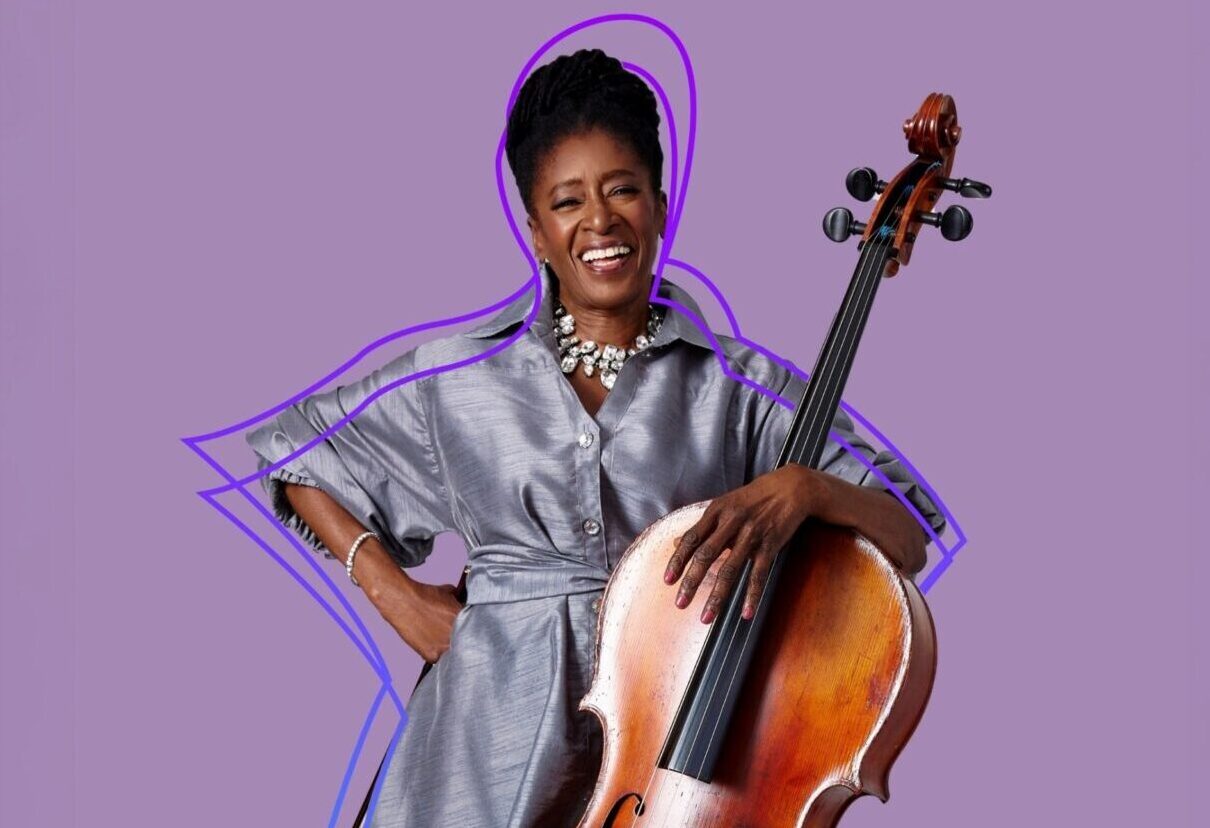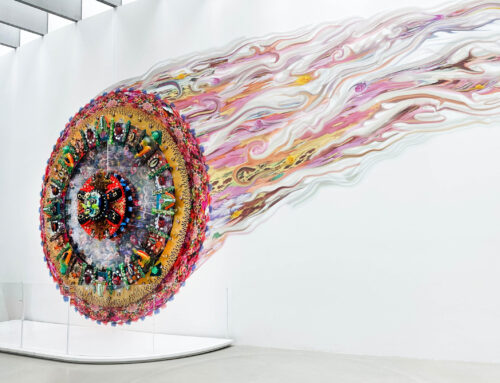The neighbor who inspires you to do hard things
Writing by Gia Miller
Design by Justin Negard
Photo by Michael Webber
One evening, when Katonah resident Akua Dixon, a cellist, composer and conductor, was raising her children in Montclair, N.J., she received a surprising phone call. “It was dinner time, and my phone rang,” she remembers. “I was told Lauryn Hill wanted to meet with me. She was working on her ‘Miseducation’ album, and someone heard my string quartet on the radio and decided that I could get jiggy with it. They wanted me to work with her. They wanted me to come over right away. I said, ‘Well, as soon as I finish feeding the kids.’” Dixon met Hill that evening and was hired to compose the string arrangements, which her quartet recorded, for the five-time GRAMMY Award-winning album “The Miseducation of Lauryn Hill.”
“Working on that album was very different for me,” says Dixon. “But I’ve worked in all styles of music.” For Dixon, who is best known as a jazz cellist, “all styles” also includes soul and blues, bebop and R&B, funk and hip-hop, Latin and swing, improvisational and contemporary, classical and Broadway musicals, and African and African-American roots. Dixon, who grew up in a household filled with music, was hired for her first union job at the age of 18, playing cello as part of a string quartet for James Brown at The Apollo Theater. She also composed music for Aretha Franklin’s Grammy-nominated album “A Rose Is Still A Rose” and worked with everyone from Duke Ellington, Dizzy Gillespie and Ray Charles to Tina Turner, Busta Rhymes and Wyclef Jean. She’s also performed at the Kennedy Center, Carnegie Hall and Lincoln Center, as well as in numerous Broadway shows such as “Dreamgirls,” “La Cage aux Folles,” “Cats” and “Doonesbury,” where she was the solo cellist on stage.
Building a crescendo
Born and raised in New York City as one of six children, Dixon’s childhood home was filled with music. “We had a piano in our home, and I learned how to play by listening to what was going on in church; I really became quite good at playing by ear,” Dixon remembers. “I was always composing and arranging little things, even before I started the cello. I would hear songs in my mind that I needed to work out, so I spent a lot of time on music before I even got into music. Studying music taught me how to notate what I was hearing in my mind.”
Dixon attended a public elementary school that spent half the day focused on academics and the other half on music. Just like her older sister, Dixon played the violin. But when someone donated several cellos to her school, everything changed. “Once I tried it,” she says, “I loved it.” By middle school, Dixon was gigging. “We started with string quartets on the weekends,” she says. “Then people began asking us to perform at churches and community events.”
Although she began composing music as a young child, her first paid composition was at 13 years old. “Someone getting married heard our quartet playing at The Lobster Box in City Island,” she explains. “They talked to our parents and asked us if we could do an arrangement of ‘One Hand, One Heart.’ It gave me an opportunity to do something very simple, and achieving it felt wonderful.”
Dixon attended the High School of Performing Arts, which she says was “a major influence on my ability to do a lot of the things that I’ve been able to do. They had an excellent curriculum and theory department.” During her four years there, she continued playing gigs and began arranging music and contracting other young musicians for gigs. Dixon then attended the Manhattan School of Music but left before graduating because she was “working too much.”
Change of tempo
As a Black female cellist who began her career in the 1970s, Dixon was often among the first in both categories. “I had to make certain ground rules for myself so that I could work in those kinds of environments,” she explains. “For example, I always came to the job dressed and ready to go. I didn’t go into the band room where people were changing; I stayed upstairs, did my job and left. There were challenges as a woman, as a Black person, and as a bandleader. When the rest of the band was male, they just assumed that one of the men led the band, and they didn’t want to deal with a woman. Even the women thought they were supposed to deal with the men, so it wasn’t always easy.” But Dixon “always took charge” and made it work.
Dixon never shied away from a challenge. She was the founding cellist of the Max Roach Double Quartet, playing alongside her sister Gail, who became a professional violinist, and Roach’s daughter Maxine. They rehearsed five days a week for six to eight months until they began performing, and Dixon says it changed her life. “I worked with James Brown, so I learned how to groove and play funk,” she explains. “I played with Latin performers, so I learned how to play a montuno with the right rhythmic feel. I played with Duke Ellington, so I learned how to play swing. But bebop was a whole different thing. String players didn’t just play whole notes; he wanted us to actually swing to the music. So working with him and learning how to do that with my bow was invaluable.”
Later in her career, in 1995, Dixon was hired to notate and conduct the music to the ballet “Riverside” by Judith Jamison, with music by Kimati Dinizulu for Alvin Ailey’s American Dance Theatre. “It was one of the most difficult things I’ve had to do,” she says. “Kimati was an African drummer and percussionist, and he had a full ensemble that performed the music. Judith edited the music to fit her ballet, but when it came time to actually present the work, and the ensemble had to play it, they couldn’t. In the studio, they were playing how they felt, and they couldn’t read music. So, how do you notate it so that they can follow the music and follow the dancers?” Dixon was hired in September, and opening night was in December—nonetheless, she figured it out.
Most recently, the CityMusic Cleveland Chamber Orchestra commissioned Dixon to compose and notate a piece for her string quartet. The piece was called “We the People.” “It was a big challenge because it was very unusual writing, even for me,” Dixon explains. “The topic is very intense; it’s not a cheerful song and dance vibe.” Dixon’s finished composition explores what justice, equality and freedom have meant throughout America’s history.
Playing it forward
Dixon has won numerous awards during her career, including two National Endowment for the Arts (one for composition and one for performance), the African American Classical Music Award from Spelman College, and most recently, the Legacy Award from the Jazz Foundation of America and the Mellon Foundation. “You can’t apply for this award, so it was an honor to be chosen,” says Dixon. “It funds tailored services to help my career, so it’s giving me an opportunity to use some of it to archive and document what I’ve done and to do something moving forward.”
Dixon, who developed the Hip Hop Blues Project for NYC school children in 2005 and taught at Bard Conservatory, is passionate about music education for children and working musicians. She believes music should be part of every child’s education—not just for the artistry, but because reading and interpreting it strengthens skills in math, language and critical thinking.
And she also believes in passing on what she’s learned after decades in the industry. “You have to make a living,” she says. “Many young artists don’t know how to protect themselves—how to make sure they get paid, how to file contracts.” Dixon says her children’s friends—both of her children are professional musicians—often ask her questions, and she’s glad they do. “It really does make a difference,” she says.
Globally, Dixon dreams of a world where “everybody on the planet has fresh water, something to eat and an education. “There are people who are born dirt poor who have been given a gift but who are held back from learning and doing something with that gift because they don’t have money or educational opportunities. Educating the mind should be a priority all over the world because it ultimately will help everyone.”
To learn more about Akua Dixon and the other musicians featured in this series, check out our podcast, available on Spotify.
This article was published in the July/August 2025 edition of Connect to Northern Westchester.









